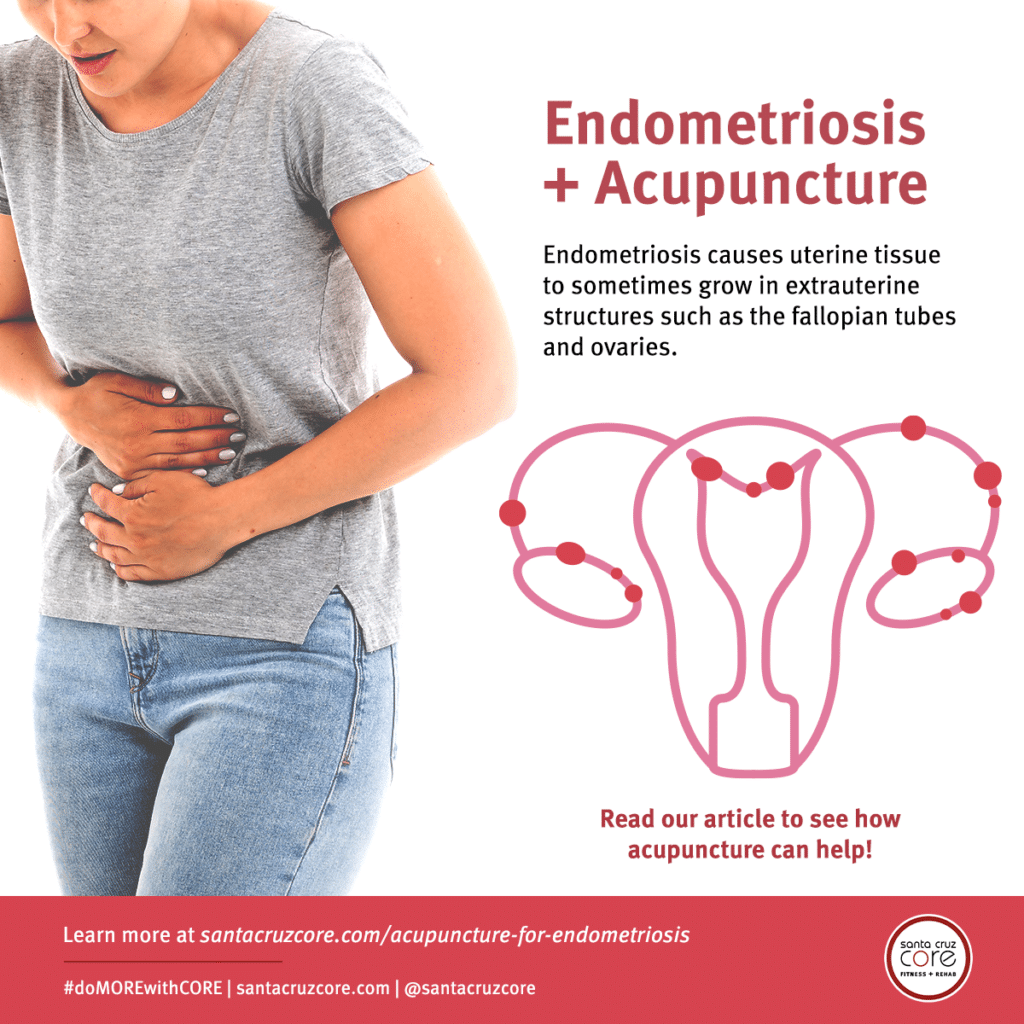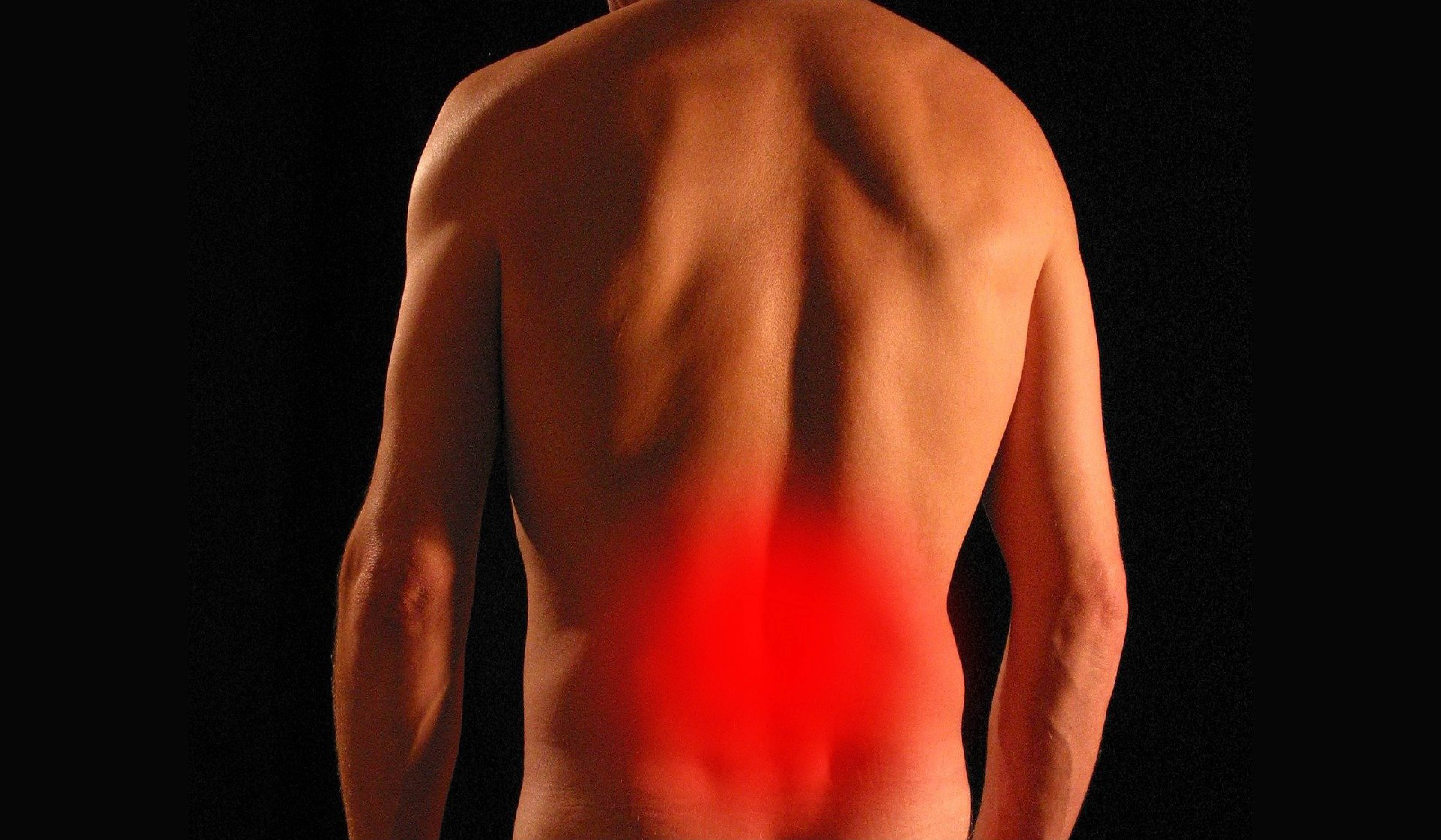Endometriosis is a gynaecological condition that affects about 10% of women of reproductive age (“Endometriosis,” 2021).
Women who suffer from endometriosis can have a range of intrusive symptoms including pelvic pain, pain during intercourse, and painful periods.
Endometriosis has no known cure and its treatment revolves around symptom management. Acupuncture may be an effective complementary treatment for endometriosis that is non-invasive, non-pharmacological, and natural.
What Exactly is Endometriosis?
Endometriosis causes uterine tissue to sometimes grow in extrauterine structures such as the fallopian tubes and ovaries.
These extra-uterine tissue growths respond to hormonal changes just like endometrial tissue- thickening and shedding (breaking down and bleeding) with each menstrual cycle. The breakdown of this endometrial-like tissue results in internal bleeding that has nowhere to go.
As a result, it irritates extra-uterine structures causing inflammation, forming scar tissue, and adhesions.

The severity of symptoms a woman with endometriosis will experience can vary, some are asymptomatic while others suffer severe pain during menstruation.
Endometriosis can predispose a woman to ruptured ovarian cysts, ectopic pregnancies, and lead problems with fertility (Carlson Et al., 2004). The exact cause of endometriosis is unknown, but there are hypotheses for its origin.
According the World Health Organization (W.H.O.) (“Endometriosis,” 2021), these hypotheses include:
- Retrograde Menstruation – Hypothesizes that menstrual blood carrying endometrial cells is involved in some type of backflow through the fallopian tubes into the pelvic region. The endometrial cells then implant and grow in the pelvic region.
- Cellular Metaplasia – Hypothesizes that somehow cells in the pelvic region transform into endometrial-like cells.
- Stem Cell Origin – Hypothesizes that the endometrial-like cells come from stem cells that travel through blood and lymphatic vessels.
Available Treatments
Treatments for endometriosis involve managing symptoms and are not curative. According to a post by the Mayo Clinic this can include medication or surgery and depends on the severity of symptoms (“Endometriosis,” 2018).
Medications can include pain medications such as non-steroidal anti-inflammatory drugs (NSAIDS) and hormone therapy such as contraceptives (birth control pills).
Surgery may be done to remove growths of endometrial-like tissue in extrauterine structures, this may improve a woman’s chance of becoming pregnant. Surgery is not curative; endometriosis and associated symptoms may return.
Hysterectomy, surgical removal of the uterus, may be considered if a woman doesn’t want to have children and has thoroughly discussed the risks and procedure with her physician.
Acupuncture For Endometriosis
Acupuncture is very often considered a complementary therapy in the treatment of endometriosis symptoms, particularly pain.
Payne (2019), concluded in a case study of a patient with endometriosis who was treated with acupuncture and herbal formulas (Traditional Chinese Medicine treatments), that acupuncture had a “positive effect on pain management.”
The particular patient reported a decrease in pain after each treatment as well as a decrease in pain level (in a scale from 1 to 10) from an initial 10 down to a 3 to 4 after six months of treatment.
A systematic review and meta-analysis by Xu Et al. (2017), carried out to determine the effectiveness of acupuncture in endometriosis-related pain, concluded that the literature does suggest acupuncture can reduce endometriosis-related pain.
Additionally, it concluded that it also lowers cancer-antigen 125 (CA-125) serum levels, which tend to be elevated in women with endometriosis. Xu et al.(2017) also mentions that other studies have associated reduced CA-125 levels with reduced endometriosis-related pelvic pain.
While more research is needed to determine the definite effectiveness of acupuncture, the current research is promising.
Why Acupuncture?
Acupuncture balances the body’s Qi, or energy, and boosts its natural healing ability. Additionally, acupuncture may help stimulate nerves and muscles which can lead to the release of endorphins (the body’s natural pain killers) as well as relax connective tissue.
At Santa Cruz CORE, our licensed acupuncturists can help with endometriosis-related pain as well as other types of musculoskeletal pain.
References:
- Endometriosis. (2021, March 21). Retrieved from https://www.who.int/news-room/fact-sheets/detail/endometriosis
- Carlson, K. J., Eisenstat, S. A., & Ziporyn, T. D. (2004). The new Harvard guide to women’s health. Cambridge, MA: Harvard University Press.
- Endometriosis. (2018, July 24). Retrieved from https://www.mayoclinic.org/diseases-conditions/endometriosis/diagnosis-treatment/drc-20354661
- Payne J. A. (2019). Acupuncture for Endometriosis: A Case Study. Medical acupuncture, 31(6), 392–394. https://doi.org/10.1089/acu.2019.1379
- Xu, Y., Zhao, W., Li, T., Zhao, Y., Bu, H., & Song, S. (2017). Effects of acupuncture for the treatment of endometriosis-related pain: A systematic review and meta-analysis. PloS one, 12(10), e0186616. https://doi.org/10.1371/journal.pone.0186616









Leave a Reply